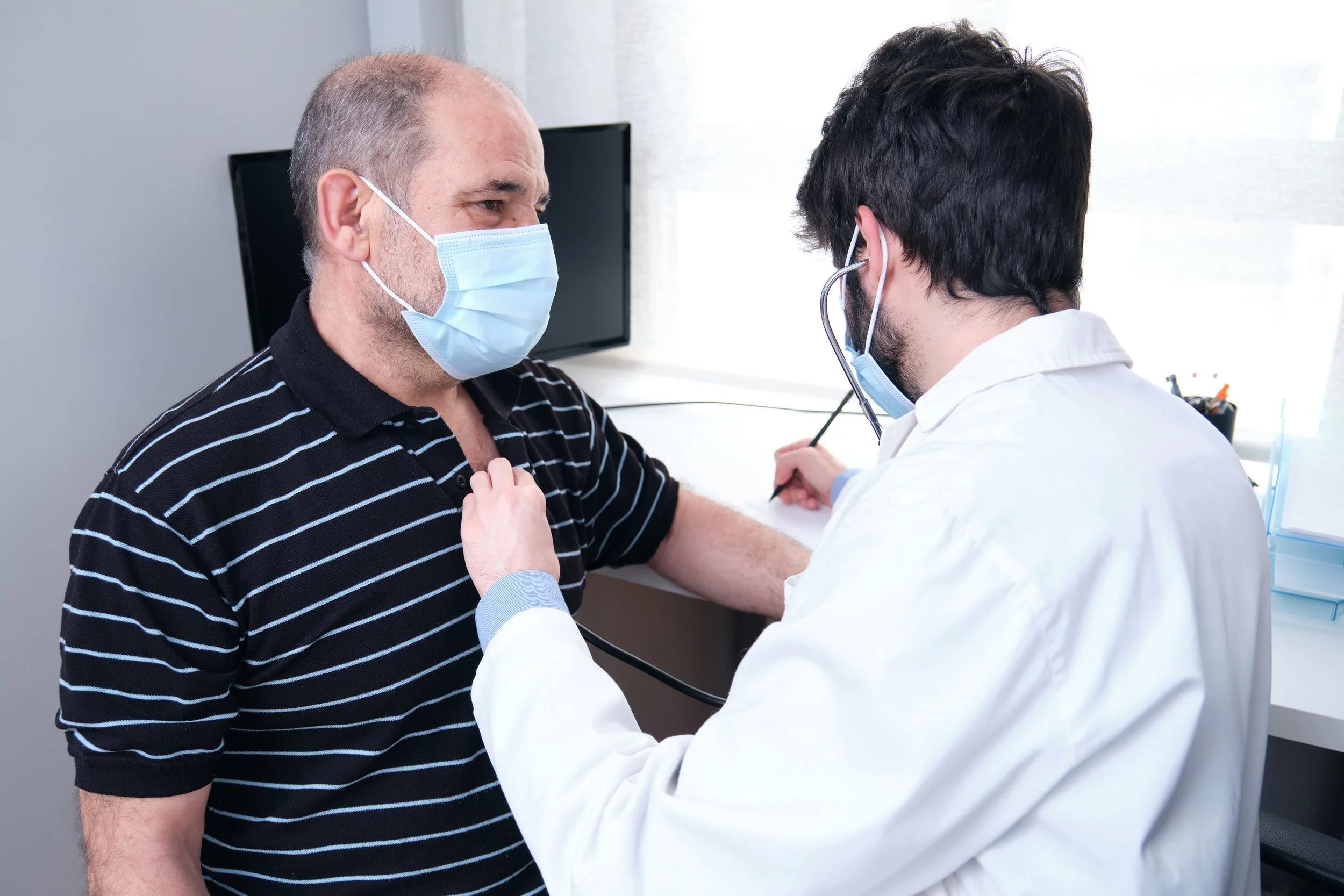What to Expect in Your Driver’s Medical Exam
Summary:
Driver’s medical exams are required for commercial drivers, as well as seniors renewing non-commercial licenses in Ontario. These exams assess fitness to drive through tests like vision, hearing, physical health, and urine. Cognitive exams may also be required for non-commercial drivers over 80 years old. Preparation for a driver’s medical exam in Ontario involves bringing medications, eyewear, and medical history. After the exam, results are submitted to ServiceOntario (non-commercial) or MTO (commercial), with processing typically taking up to 2 weeks.
What to Expect in Your Driver’s Medical Exam
Before you get behind the wheel, you need to know you're medically fit to drive. Driver’s medical exams are required for both commercial drivers and seniors who are renewing non-commercial licenses.
A driver’s medical exam ensures you're in good health and that you can safely operate a vehicle, particularly in challenging conditions. It’s about keeping you and the public safe.
This article walks you through what to expect during your exam, how to prepare, and what happens afterward. It also includes a free quiz that can help you understand what kind of tests you might need during your exam.
When you’re ready to take your exam, Panel Physician can help. Book your appointment at one of our 5 locations in the Greater Toronto Area.
What Tests Will You Need for Your Driver’s Medical Exam?
Take our free Fit to Drive Quiz below to find out what tests will most likely be required for your driver’s medical exam, based on your personal health factors. Just answer a few simple questions and get personalized results showing what you can expect during your exam.
Fit to Drive Quiz
Your Required Tests
Age & License Type: Who Needs What?
Commercial Driver’s License (Class A, B, C, D, E, F)
If you're applying for or renewing a commercial driver's license, your medical exam will include more comprehensive testing, such as:
Vision Test: You’ll need to meet specific visual acuity standards.
Physical Exam: Includes checking your overall health, cardiovascular, and neurological function.
Urine Test: Screens for conditions like diabetes or kidney issues.
Hearing Test: Certain classes (e.g., B, C, E, F) require this to ensure you can hear important sounds on the road.
Non-Commercial Driver’s License (Class G)
For non-commercial drivers, the medical exam is typically simpler:
Vision Test: This is required for all drivers, ensuring you can see clearly.
Cognitive Test: For drivers aged 80 and above. This test ensures you can safely react and make decisions on the road.
Provincial Renewal Triggers
These guidelines are for Ontario, but other provinces may have different age thresholds and requirements. For example:
BC: Annual medical exams are required for commercial drivers.
Alberta: Seniors 75+ must provide medical reports every 2 years.
What to Expect During the Different Parts of Your Exam
Note that a driver’s medical exam is different from an Immigration Medical Exam (IME). If you got an IME when you moved to Canada but want to work as a commercial driver, you will still need to take a driver’s medical exam.
Learn More: Frequently Asked Questions about Immigration Medical Exams in Canada
Each driver's medical exam includes specific tests to assess your ability to drive safely. Let’s break down the tests you may encounter.
1. Vision Test
Your vision test will assess:
Visual acuity (how well you see at a distance)
Peripheral vision (side vision)
Color blindness (for some drivers)
If you have poor vision, you may be required to wear corrective lenses while driving. If you fail, you may need to follow up with an eye specialist.
2. Hearing Test
For commercial drivers in certain classes, a hearing test is required to ensure you can hear critical sounds, such as sirens, horns, or emergency signals while on the road. This test may also apply to some non-commercial drivers with certain medical conditions.
3. Physical Exam
Your examiner will perform a physical check to assess your:
Cardiovascular health: Heart disease, high blood pressure, or any history of strokes.
Neurological health: Reflexes, coordination, and any history of seizures or neurological conditions.
Musculoskeletal health: Strength, mobility, and overall fitness for driving.
This helps ensure you don’t have any medical conditions that could impair your ability to drive safely.
4. Urine Test
The urine test screens for:
Diabetes: Uncontrolled diabetes can cause hypoglycemia or neuropathy, impairing your ability to drive.
Kidney disease: Chronic conditions can affect your overall health and alertness.
Other health conditions: Some medications or conditions may require special consideration.
5. Cognitive Test
For drivers aged 80 and older, a cognitive test may be required. This test evaluates your ability to make quick, clear decisions, react to potential hazards, and remember important details when driving.
Tips on Preparing for Your Driver’s Medical Exam
Proper preparation ensures that you can get through your exam quickly and without stress. Here are some things you can do before your appointment:
Bring a List of Medications: If you're on any prescribed medications, bring a list with the name and dosage. This will help your examiner assess how they may impact your driving.
Bring Eyewear: If you wear glasses or contacts, make sure you bring them to the exam for the vision test.
Prepare Your Medical History: If you have any relevant health conditions (e.g., heart disease, diabetes, neurological conditions), bring documentation or records from your doctor.
Drink Water: You’ll likely need to provide a urine sample, so make sure you're well-hydrated before your appointment.
What Happens After the Exam?
Once your exam is complete, your examiner will submit the results to ServiceOntario. You’ll also receive a signed copy of your exam report for your records. Here’s what you can expect:
For Commercial Drivers: Your results will be sent to the Ministry of Transportation (MTO) for review. If any medical conditions are flagged, additional documentation or evaluations may be requested.
For Non-Commercial Drivers: Your exam results will be forwarded to ServiceOntario for processing and your driver's license renewal.
How Long Does It Take to Process the Results in Ontario?
In Ontario, the processing time for your driver's medical exam results typically takes up to 2 weeks. However, if additional assessments or documentation are needed, it may take longer. You can always check the status of your application here.
Get Accurate Results: Book Your Driver’s Medical Exam with Experts
A driver’s medical exam is a necessary step to ensure that you’re fit to drive safely. Whether you’re applying for a commercial driver’s license or renewing your non-commercial license, understanding what to expect and choosing a clinic that can help you prepare for a smoother, faster experience is important.
Ready for your driver’s medical exam? Book now with Panel Physician and get assessed by our expert team. We offer convenient locations, walk-ins, and same-day appointments to make your process as easy as possible.



